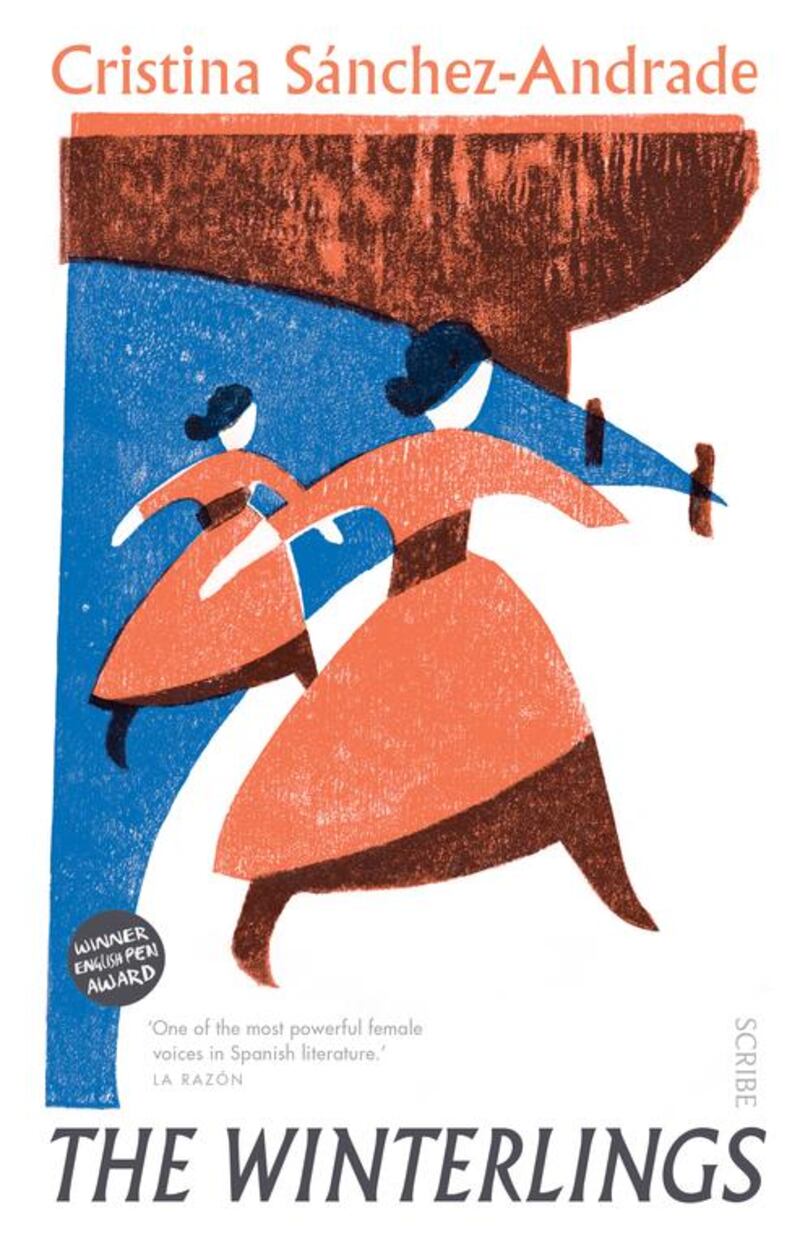The small, rural parish of Tierra de Chá in Galicia, unchanged despite the onward march of time, provides the setting for Spanish author Cristina Sánchez-Andrade's strange, unsettling novel The Winterlings.
After an absence of 25 years, sent away at the behest of their grandfather during the dark days of the Civil War – joining the ranks of children evacuated to England known as the Basque refugees – two sisters, Saladina and Dolores, return to the now abandoned home of their youth. There’s distrust and trepidation on all sides. The sisters have a terrible secret, but so too are the villagers keeping their lips sealed when it comes to the death of the girls’ grandfather.
Such mystery adds to the already fairy tale-like atmosphere. “We’ll be fine,” the sisters reassure each other as “the light dwindled, and the cold sharpened” on the first night of their return; not out of fear, we’re told, but from something closer to “suspicion, a strange intuition”.
This sense of foreboding befits the broader scene; one in which whispers of enchantment and superstition are in the air, particularly when it comes to the witchy sisters’ own heritage – one with her “pointy face and an aquiline nose,” the other with her “jet-black hair” and searing gaze: “those green eyes with golden flecks around the iris”.
The village is still thick with the memory of their grandfather, “an arresponsador, who knew the right prayers and incantations to ward off penuries and misfortune” and could diagnose any sickness with just a look at the patient in front of him.
There's also a more modern intoxicant at work. Having fallen in love with the magic of the big screen during their time in England – Sunday afternoons spent in the darkness of the local cinema – when news reaches the village that Ava Gardner is coming to Spain to shoot Albert Lewin's film Pandora and the Flying Dutchman, for which English-speaking lookalikes are wanted, the sisters think their dreams of becoming movie stars are about to come true.
The particular dreamlike clarity and colour of Lewin’s film also characterises Sánchez-Andrade’s novel, the rich sensual texture of the prose perfectly conjured by Samuel Rutter’s evocative translation from the original Spanish. From the disgusting to the sublime – the “putrid stench” of one sister’s unsavoury mouth that “crawled” over the other; or the glorious Technicolor sheen of a bright red silk stocking – Rutter captures it all.
There are also shades of the American gothic in Sánchez-Andrade’s portrait of Tierra de Chá, echoes of the creepy rural communities that populate the works of Shirley Jackson and Flannery O’Connor. A celebratory festival provides entertainment in the form of circus freaks, but on any day of the year the village already rivals such sideshows with its own cast of grotesques.
There’s Mr Tenderlove, the cross-dressing dental technician who has “shown a dark passion for dentures” ever since he was a child, and provides Saladina with a much desired new set of teeth; and Don Manuel, the priest with his own particular pungent scent, “a brown-coloured smell […] somehow linked with pious old ladies and steamed cauliflower”.
The sisters, with their uneasy codependence and slightly off-kilter attitude, fit right in. Aided by the eerie sense of the village and its inhabitants existing somehow out of time, all elements combine to create a novel that’s as much an exercise in tension than anything else, Sánchez-Andrade pulling her story ever tauter with each turn of the page. So much so, in fact, I kept expecting it to tip over into a Giallo-esque bloodbath, but that would have been a very different type of horror.
Lucy Scholes is a freelance reviewer based in London.





